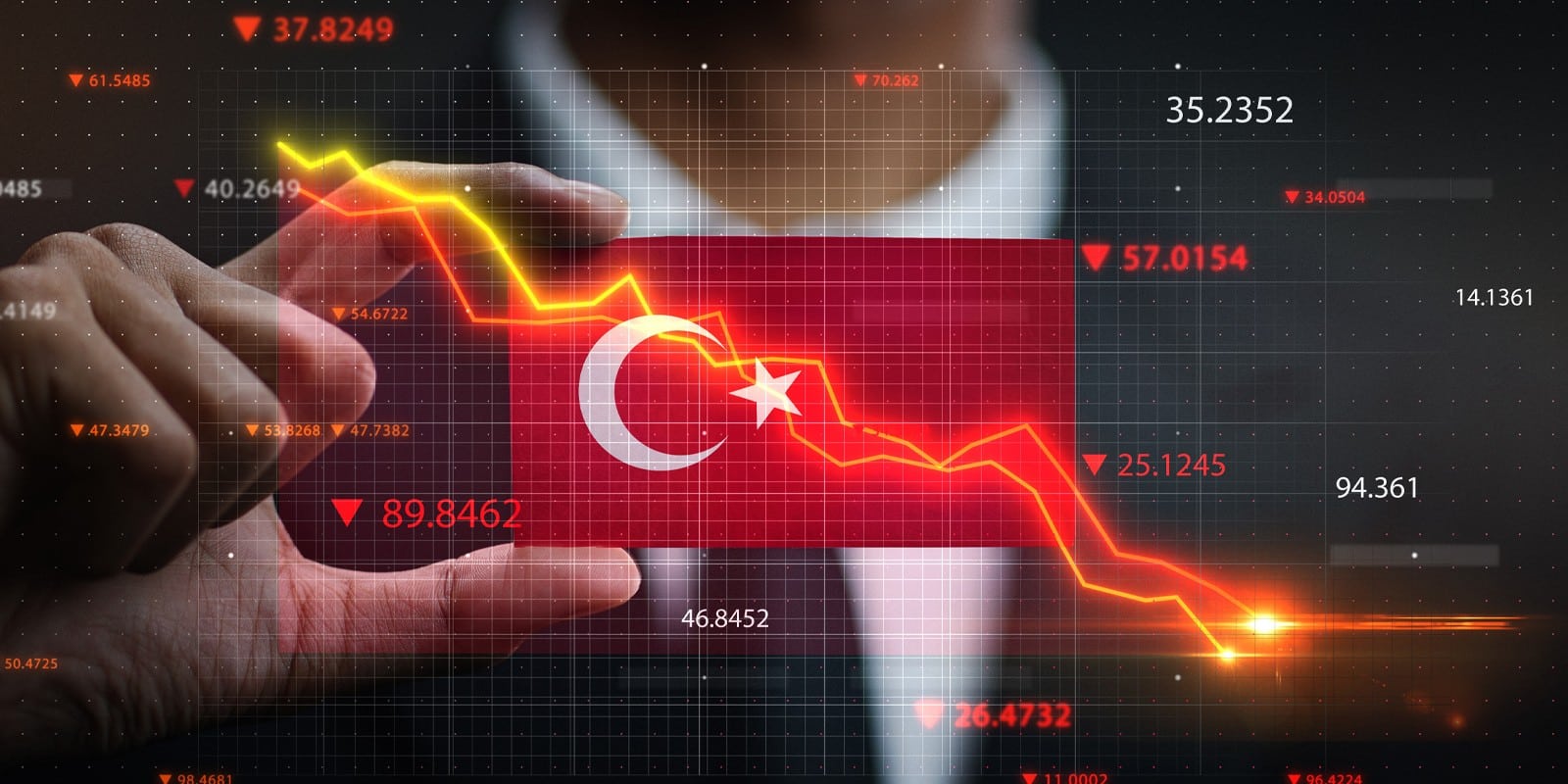The economic situation in Turkey still offers a striking contrast with, on the one hand, resilient growth and, on the other, galloping inflation, dwindling foreign exchange reserves and a depreciating pound. In short, the reed bends but does not break.
We had already mentioned the very singular economic situation of Turkey which was as surprising as it was worrying. This situation remains unchanged. Growth was maintained until the first quarter at a sustained rate (+1.2% compared to the quarter of 2021) while inflation increased at a monthly rate of +5.1% on average between February and June 2022 (to reach 78.6% YoY). Alternative estimates suggest a 3-digit inflation rate. At the same time, foreign exchange reserves fell by nearly USD 28 bn at the end of November 2021 and at the end of June due to the increase in the gas and oil bill and portfolio investment outflows. The pound depreciated by around 20% against a euro-dollar basket.
However, business confidence still remains at a high level even though it has been eroding since November. In particular, the balance of opinion of manufacturers on their export order books is significantly higher than its historical average. Turkish companies have strengthened their position on foreign markets, particularly in Europe. Moreover, excluding energy and gold imports, the current account balance is largely in surplus. Even more strikingly, the balance of opinion among manufacturers on investment and recruitment intentions continued to improve until June. Turkish companies are experiencing an increase in the cost of their raw materials and intermediate products which they can more or less pass on to their selling prices, but they benefit from negative real interest rates which encourage them to invest.
On the household side, on the contrary, confidence collapsed with the acceleration of inflation, despite an improvement in the labor market. Households suffer losses of purchasing power despite the revaluation of the minimum wage which, however, only constitutes a catch-up on past inflation. Outstanding credit cards and installment loans, which are generally used to meet unforeseen expenses, or even make ends meet during difficult months, have accelerated sharply since April. In summary, inflation exacerbates household budget constraints.
The inflationary burden suffered by the population has led the government to pass a massive supplementary budget (around 6.5% of 2021 GDP). Most of the additional expenditure concerns personnel expenditure, social transfers and subsidies for coal and gas importers in order to limit the rise in energy prices. In fact, the State is using its budgetary room for maneuver provided by the increase in tax receipts (excluding interest, the budget balance is in surplus) and a borrowing rate in real terms that is even more negative than for companies.
But the balancing act is getting harder and harder. On the one hand, the government maintains its strategy of deliberately accommodative monetary policy and a competitive exchange rate to stimulate exports and investment and encourage import substitution. He will now use fiscal leverage to mitigate the economic cost of inflation in Turkey. On the other hand, the monetary authorities have tightened the macro-prudential rules on the distribution of credit, both from a quantitative and qualitative point of view. But they have also been forced to strengthen coercive measures to stop the erosion of foreign exchange reserves (such as the obligation for exporters to repatriate now 40% of their export earnings).

Comments are closed